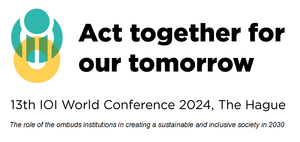In the opinion of the Commissioner for Fundamental Rights, the state does not completely fulfill its obligations, as the cases of deaths in residential care homes are not automatically followed by objective, professional inquiries, independent from the age of the deceased person and the maintainer of the institution.
In its submission to the Ombudsman, an international human rights organization called Mental Disability Advocacy Center (MDAC) complained of the fact that the deaths in social care homes, children’s care homes, care homes for persons with disabilities, psychiatric institutions maintained by the state are not followed by an investigation conducted by an independent body in each case.
As a result of his inquiry, Ombudsman László Székely said in summary that there are currently several types of procedures that are applied in cases of death in such institutions. The choice of such procedure depends on whether the care home is maintained by the state, whether it is under the scope of the Social Code or the Child Protection Act, and also, whether the deceased person was under 18 years of age.
In the Ombudsman’s opinion, an objective investigation independent from the players in the social welfare system will be necessary in relation to any and all deaths in institutions of long-term or residential care. The development and maintenance of a uniform preventive mechanism for the protection of rights should be a key element in the state’s objective obligation to protect the life and health of the persons under care.
Recently, it was pointed out in a number of the Ombudsman’s reports that resources are deficient in nursing homes with a high number of beds, what is more, it has also happened that the records made of inspections by the supervising authorities indicated life-threatening conditions. All this justifies that the reasons for the cases of death in nursing homes should be investigated into objectively, in the best interests of the patients and the staff who takes care of them. Furthermore, the Commissioner also concluded that the residential care institutions that provide professional care qualify as places of detention, and pursuant to the effective laws, the death of a detainee is always deemed an extraordinary case of death.
Ombudsman László Székely pointed it out that the effective statutory environment and the law enforcement practices are not compatible with the state’s objective obligation to protect life, and they are not compliant with the obligations undertaken in the Convention on the Rights of the Child and the Convention on the Rights of Persons with Disabilities, either. The Commissioner asked the Minister of Human Capacities to set up an action group, by involving the experts concerned, which will elaborate the legal frameworks and professional protocols ensuring objective investigation into the cases of death in social care homes and children’s care homes maintained by the state or by another entity.
Source: Office of the Commissioner for Fundamental Rights, Hungary

